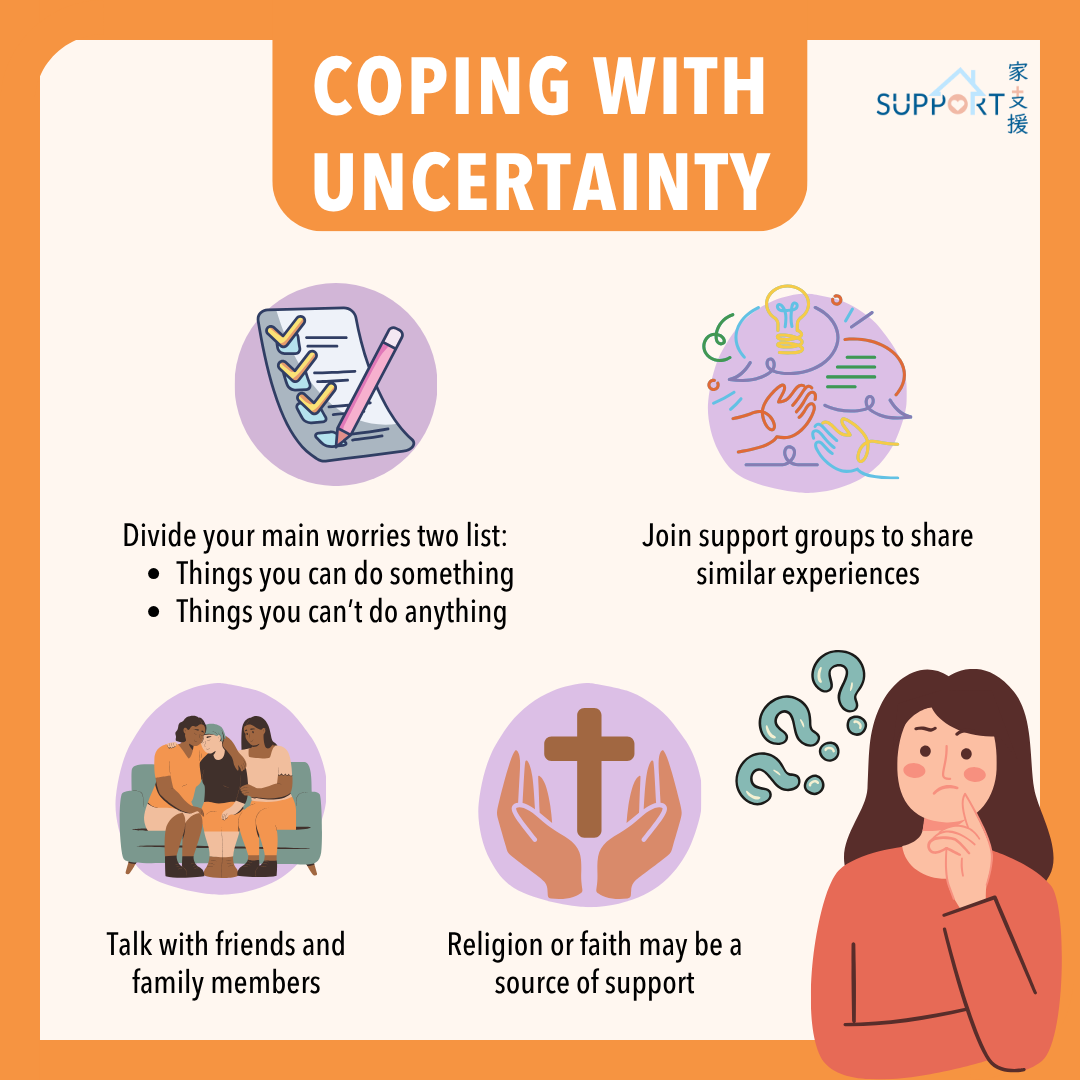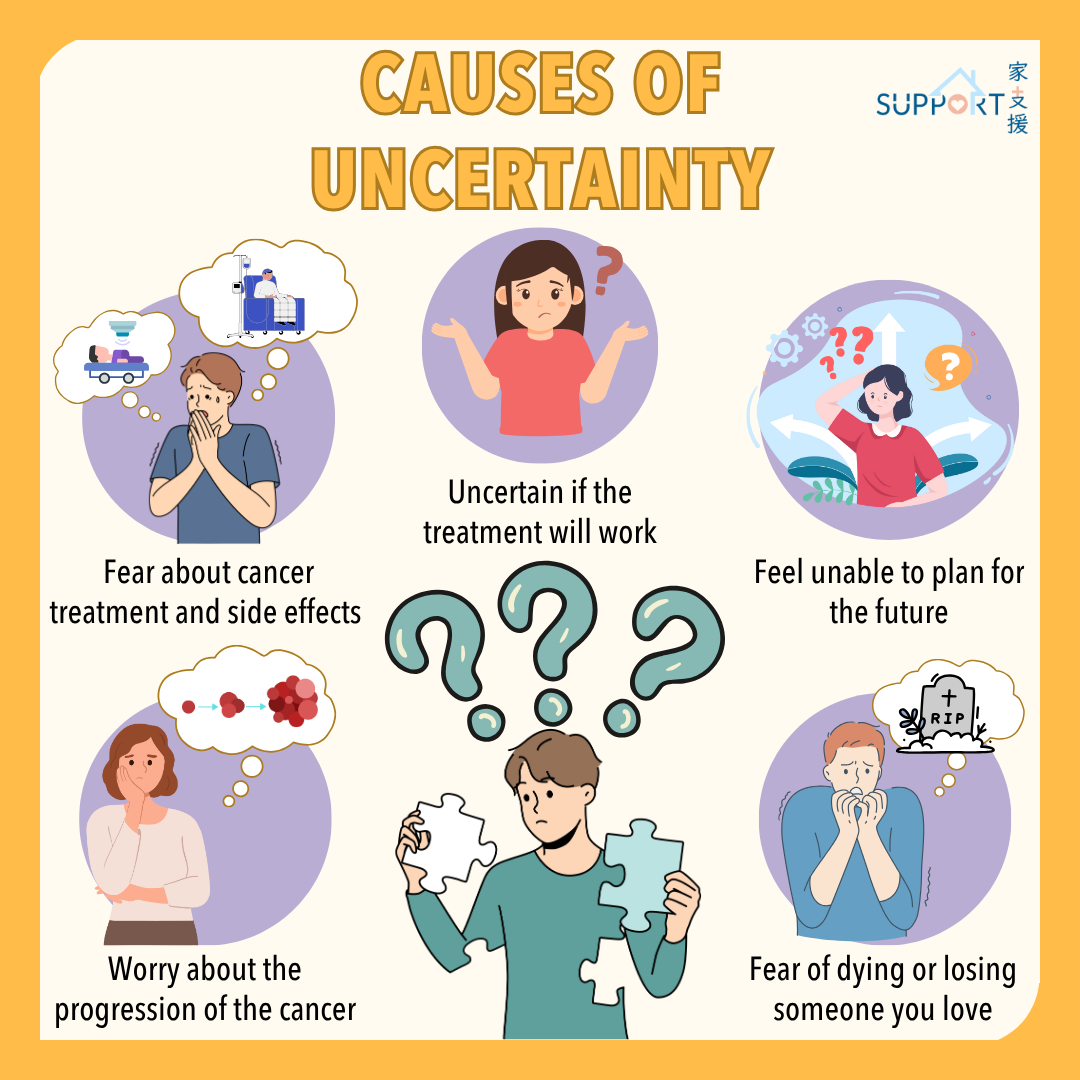
1. Accepting what you can and can't control.
- Write down your main worries. List as many as you need to.
- Divide the list into two. One list is for the things you can do something about, and the other list is for the things you can’t do anything about.
- Make a plan to finish the items on the first list and seek help if needed to finish them. Try to let the second list sink in.
2. Talk with friends and family members.
- Tell your loved ones how you feel and how they can help.
3. Mindful of the present moment
- Find ways to focus on ‘here and now’.
- Consider taking a few deep breaths and close your eyes.
- Then open your eyes and identify three things you see that make you feel at peace.
4. Share experience
- There are times in which the uncertainties that confront you are not shared by others. However, there are also some instances in which others are confronted by the same uncertainties as you.
- It can be useful to talk with someone who share similar experiences.
- Joining support groups may help.
5. Religion/ faith
- Any religion or faith that has played a role in your life?
- Will it be a source of support?



